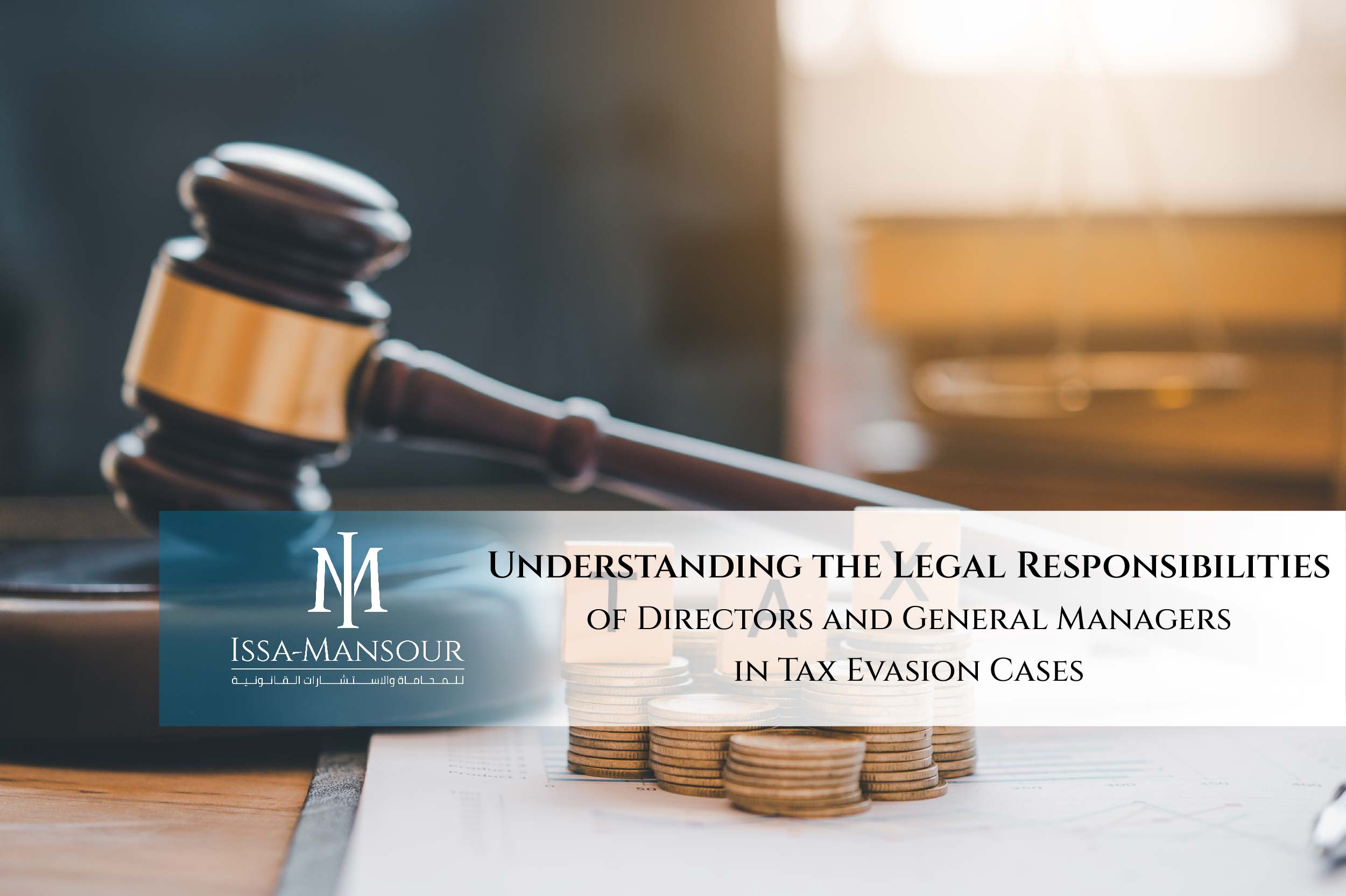In corporate governance, the legal responsibilities of directors and general managers extend beyond the company itself. Article 21 of Law No. 44 of 2008 establishes that leaders of limited liability and joint-stock companies are not only accountable for their company’s tax obligations but also personally liable in tax evasion cases.
Key Legal Responsibilities Under Article 21
Article 21 of Law No. 44 of 2008: “In addition to the primary responsibility of legal persons, the general manager in limited liability companies, and the chairman of the board of directors and/or the general manager in joint-stock companies, shall be jointly and severally liable with the legal person (COMPANY) and among themselves for the tax resulting from their deliberate failure to comply with tax obligations, including their undertaking or consent to undertaking acts that led to tax evasion if this is proven by a court ruling.”
According to this article:
- Joint and Several Liability: The general manager of a limited liability company, and the chairman or general manager of a joint-stock company, are held jointly and severally responsible for any tax obligations resulting from their deliberate failure to meet tax obligations.
- Tax Evasion Responsibility: This responsibility includes any actions they have knowingly undertaken or agreed to that result in tax evasion, as confirmed by a court ruling.
Article 21 establishes that key officers in a company are not only responsible for ensuring tax compliance within their company but are also individually accountable for any intentional violations of tax laws.
Implications of Inadequate Share Transfer Registration
A common issue that many managers face is the improper registration of share transfers. When a managing partner transfers their share in the company’s capital, it is crucial to update this change in the company’s registry at the Commercial Registry Office. Failing to do so, along with neglecting to notify the Ministry of Finance to amend its records, can result in the former manager being held accountable for any outstanding taxes and legal actions taken against the company for tax evasion.
The Risks of Tax Liability for Former Managers
Even after stepping down from their role, former managers and partners may find themselves unjustly liable for the company’s tax liabilities. This exposure can lead to significant financial and legal repercussions, including being pursued by the Public Prosecution for tax evasion. It is crucial to understand that responsibilities extend beyond merely relinquishing managerial duties; proper documentation and notification are essential to fully discharge liability.
Steps to Ensure Compliance and Protect Yourself
To mitigate risks and ensure compliance, managers and partners should take the following steps:
- Register Transfer of Shares: Ensure that the minutes of the general assembly or board meetings, where the transfer of shares is approved, are accurately registered in the company’s registry.
- Notify the Ministry of Finance: Submit a formal request to the Ministry of Finance to update the company’s records and reflect any changes in management or shareholding.
- Consult Legal Professionals: Seek advice from legal experts to ensure all regulatory and compliance aspects are thoroughly addressed during the transition.
Conclusion
Understanding and fulfilling these responsibilities is critical for directors and general managers to avoid potential liabilities and legal complications. By taking proactive steps to manage and document their roles and responsibilities, individuals can protect themselves from future legal and financial challenges related to tax obligations.

